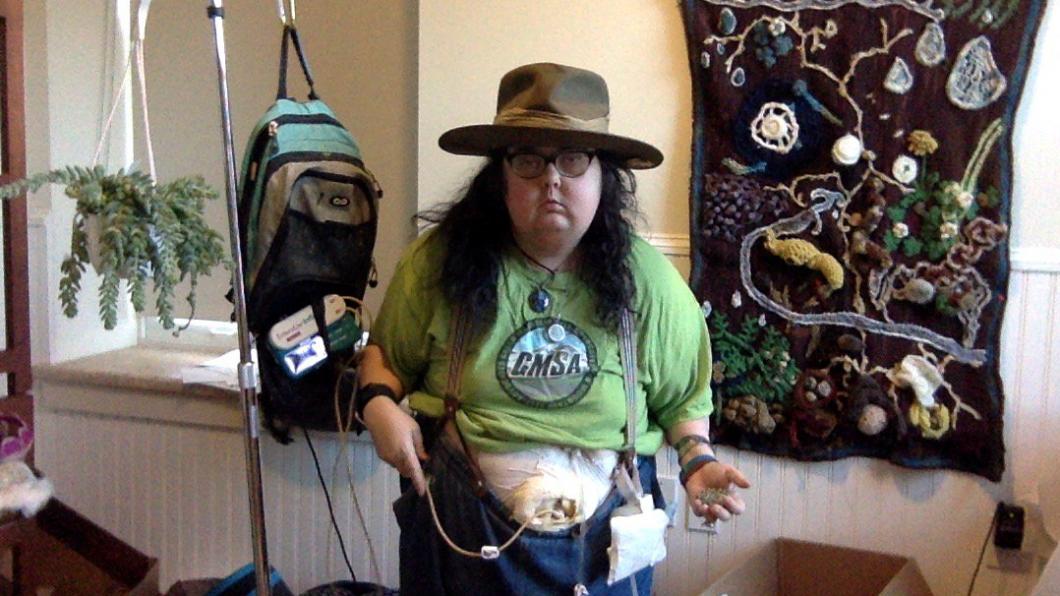
Without being disabled, 'we'd be someone different'
By Louise Kinross
On Saturday, the Autistic Self Advocacy Network tweeted that Mel Baggs, "a visionary autistic writer and advocate" had died.
You may remember this video Mel posted in 2007 called In My Language, where Mel typed into a voice synthesizer software to explain her repetitive movements: "My language is not about designing words or even visual symbols for people to interpret. It is about being in a constant conversation with every aspect of my environment, reacting physically to all parts of my surroundings. Far from being purposeless, the way that I move is an ongoing response to what is around me..."
In 2010, I wrote a BLOOM post about author Pearl Buck, who said in her book The Child Who Never Grew: "Had I been given the choice, I would a thousand times over have chosen to have my child sound and whole." She wanted her daughter, she wrote, minus her intellectual disability.
I wrote that I couldn't say the same about my son's disability, because removing it would alter his essence, his way of interacting in the world. "Something genuine and irreplaceable would be lost."
Seven years later, in 2017, Mel Baggs posted this moving comment on that BLOOM piece. Please read its powerful message.
"I don't expect anyone to read this, it's obviously a comment long after the fact. But I don't think it's just denial or rationalization, to feel like someone would be different without a disability.
"Disabled people of all kinds have mixed opinions on the topic. But basically—no matter what kind of disability someone has, if there are people with that disability who are able to communicate their opinions in a way other people understand, then at least some people with that disability will be saying "We wouldn't want to be nondisabled because it would mean being someone else." That includes people with assorted developmental and cognitive disabilities including intellectual disabilities. That includes people who spent a lot of their life hearing that because they had a (real or presumed) severe intellectual disability they'd never communicate in words, but later learned to say things through speech, typing, signing, picture symbols, etc.
So I would imagine that people without (at this point in their lives) reliable language, have the same mix of opinions on the matter that other people with disabilities have. And in many ways it's better for us if we know our parents accept us as we are—no matter how we ourselves end up feeling about the matter.
Also people confuse the way society treat us with the way our bodies work. Like: There is nothing about my body that make an ICF/DD or a nursing home exist, not even anything that makes one necessary. Those are ways other people choose to respond to the existence of people like me. They aren't the result of our existence or the form that existence takes. Treating these things as sad but inevitable just makes them more inevitable. And to the extent that they cause, worsen, etc. our suffering, that suffering isn't all about our bodies either—who we are, what type of person we are, how our bodies work, does not cause this.
And I think you're very right that we'd be someone different without being disabled. Being disabled almost always means huge differences in how your body works. Which is a huge part of who all of us are. Some of us see that more than others. And it certainly isn't all of who we are. But it's important when people realize it's not separate.
Understanding that we are, first and foremost, human beings, does not mean pretending our disabilities don't exist. It just means not confusing our entire personhood with what we can or can't do, things like that. It's hard to put into words the difference. But there is a difference. People, including most people with disabilities, often think there's one of two choices: See our disability, and don't see us as a full human being, and don't see our disability and therefore see us as a whole human being. There's a third option (and doubtless fourth, and fifth, etc.): See our disability, and don't let that stop you from seeing it in the context of us being a full human being. And there's nothing about this that conflicts with the quote, "We're people first, disabilities second" which comes from the life experience of being treated as a walking brain malfunction with the humanity gutted out. Which I can say we are most certainly not.
And yes, I do have developmental disabilities. (I've been officially labeled with several, the individual labels don't matter much here. Unofficially labeled with others.) And other disabilities. And some days all I wish is that people could see me as a human being. But in order to see me—to see anyone, truly—you can't ignore a big piece of how my mind works, how my body works. And trust me each of us has a mind, has a heart, has a body, and has a soul—even if they sometimes look different, even if they sometimes are different, they're never missing.